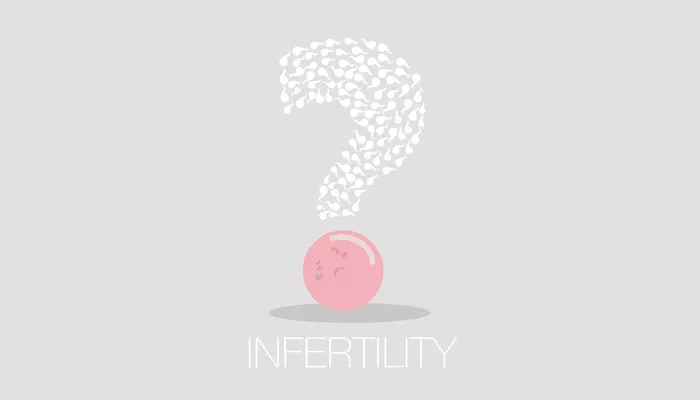Epididymitis is a medical condition that affects the epididymis, the coiled tube located behind the testicles. This tube is responsible for storing and transporting sperm. When this part of the male reproductive system becomes inflamed, it can lead to pain, swelling, and discomfort, often causing significant distress for those who experience it. One of the less discussed effects of epididymitis is its potential impact on sexual health, specifically whether it can lead to a reduced sex drive, also known as low libido. In this article, we will explore how epididymitis might affect sex drive, why it occurs, and what can be done to manage both the physical and emotional consequences of the condition.
Understanding Epididymitis
Before diving into its effects on sex drive, it’s important to understand what epididymitis is. Epididymitis refers to the inflammation of the epididymis, a critical component of the male reproductive system. The condition is most commonly caused by bacterial infections, including sexually transmitted infections (STIs) like chlamydia and gonorrhea, but it can also be caused by urinary tract infections (UTIs), prostate infections, or other bacterial or viral infections.
The primary symptoms of epididymitis include testicular pain, swelling, and tenderness. In more severe cases, fever and urinary problems such as painful urination may also be present. In some cases, epididymitis can lead to complications if left untreated, including abscesses in the scrotum, chronic pain, or fertility issues. Given the impact that this condition has on the male reproductive organs, it’s not surprising that it can also influence sexual health, particularly sexual desire.
How Epididymitis Affects Libido
Physical Pain and Discomfort
One of the main reasons epididymitis can lead to a reduced sex drive is the physical pain and discomfort associated with the condition. Testicular pain is often the most noticeable symptom, and for many men, this pain can be exacerbated by sexual activity. The pain during or after sex can make it difficult to feel aroused or interested in intercourse, ultimately lowering libido. This discomfort may also make it difficult for men to focus on anything other than the pain, which can be a major obstacle to maintaining a healthy sex drive.
In addition to pain, inflammation in the epididymis may cause a sense of heaviness or pressure in the scrotum. This can further contribute to a feeling of discomfort or fatigue, which may reduce the desire for sex. The emotional and psychological toll of living with pain, especially chronic pain, can lead to feelings of frustration, anxiety, and stress—all of which can contribute to a diminished interest in sexual activity.
Impact on Sexual Function
Epididymitis can also affect sexual function beyond just libido. In some cases, the inflammation and swelling in the epididymis can make it difficult to achieve or maintain an erection. This is because the body may focus its energy on dealing with the infection or inflammation rather than responding to sexual stimuli. In severe cases, epididymitis can lead to complications such as epididymal cysts or abscesses, which can further interfere with sexual function.
In addition, if the infection causes a disruption in sperm transport, there may be concerns about fertility, which can also negatively affect sexual desire. The fear of long-term infertility or other complications may reduce interest in sexual activity, even if the physical symptoms are managed.
Emotional and Psychological Effects
While the physical symptoms of epididymitis are significant, the emotional and psychological effects can be just as important when considering the link between epididymitis and reduced sex drive. Pain, swelling, and changes in sexual function can lead to feelings of embarrassment, shame, or even depression. For many men, sexual health is tied to their sense of identity and self-esteem. When an issue like epididymitis affects sexual function, it can lead to a significant emotional toll.
The stress and anxiety associated with chronic pain can also interfere with the ability to enjoy intimate moments with a partner. Anxiety about the potential for pain during sex, concerns about fertility, or worries about the condition not improving can all weigh heavily on a person’s mind, making it harder to feel relaxed or aroused during sexual activity. This stress can further reduce sex drive, creating a cycle that may be difficult to break.
Impact of Treatment on Libido
In many cases, the symptoms of epididymitis can be managed through antibiotics, pain relievers, and anti-inflammatory medications. However, some medications, particularly antibiotics, can have side effects that affect libido. For example, certain antibiotics may alter hormone levels or disrupt the balance of bacteria in the body, which could lead to changes in sexual desire.
Additionally, some men may experience side effects from pain relievers or anti-inflammatory drugs, including fatigue or nausea, which can further reduce the desire for sex. While these medications are essential for treating the infection and reducing inflammation, it’s important for men to discuss potential side effects with their healthcare provider to ensure that the medications do not inadvertently affect their sexual health.
Can Epididymitis Lead to Long-Term Changes in Sex Drive?
For most men, the effects of epididymitis on libido are temporary. Once the infection is treated, and the inflammation in the epididymis subsides, normal sexual function and desire generally return. However, in some cases, epididymitis can lead to long-term complications that may affect sexual health.
Chronic Epididymitis and Long-Term Pain
Some men may develop chronic epididymitis, a condition in which the symptoms of epididymitis persist for months or even years. Chronic pain and inflammation can significantly impact a person’s quality of life, including their ability to maintain a healthy sex drive. In these cases, treatment options may include long-term use of pain medications, physical therapy, or even surgical intervention. Chronic pain can lead to prolonged emotional stress, which can exacerbate the effects on libido.
Psychological Impact of Chronic Conditions
Chronic epididymitis can also lead to long-term psychological effects, including depression, anxiety, and stress, all of which are known to contribute to reduced sex drive. The ongoing discomfort and worry about the condition can take a toll on mental health, making it difficult for men to feel confident or interested in sexual activity. If left unaddressed, these psychological effects may persist even after the physical symptoms of the condition have been resolved.
Infertility Concerns
In some cases, untreated or recurrent epididymitis can lead to fertility issues. Although epididymitis itself does not always result in infertility, it can cause scarring in the epididymis or damage to the sperm ducts, making it more difficult for sperm to travel from the testes to the urethra. This can lead to concerns about infertility, which may further reduce libido. Men who are worried about their fertility may find it difficult to engage in sexual activity without anxiety about the potential consequences.
Managing the Effects of Epididymitis on Sex Drive
While epididymitis can reduce sex drive, there are steps men can take to manage the condition and its impact on sexual health.
Seek Early Treatment
The key to minimizing the effects of epididymitis on libido is early intervention. If you suspect that you have epididymitis, it’s important to seek medical attention promptly. Early diagnosis and treatment with antibiotics can help prevent complications that may affect sexual function and desire. Your doctor can provide pain relief and discuss treatment options that are appropriate for your situation.
Address Emotional Well-being
It’s also important to address the emotional and psychological effects of epididymitis. Talking openly with a partner about the condition can help reduce feelings of shame or embarrassment. Seeking support from a mental health professional can also be helpful in managing the stress and anxiety that can arise from living with chronic pain or sexual health issues.
Communication with Your Healthcare Provider
If you are concerned about the impact of epididymitis on your sex drive, it’s important to communicate openly with your healthcare provider. Your doctor can help you manage the physical aspects of the condition while also addressing any concerns you may have about sexual health. They can adjust your treatment plan if necessary to minimize side effects that may affect libido.
Conclusion
Epididymitis can affect a person’s sex drive in several ways, from the physical pain associated with the condition to the emotional and psychological toll it can take. While most men experience a temporary reduction in libido during the acute phase of the condition, it is important to address both the physical and emotional aspects of the condition to ensure that sexual health is restored once the infection has been treated.
If you are experiencing symptoms of epididymitis and have concerns about your sex drive or sexual function, it is essential to seek medical advice. With the right treatment and support, most men can recover fully and regain a healthy libido.
Related topics:
What Causes Swollen Veins in Testicles?




















